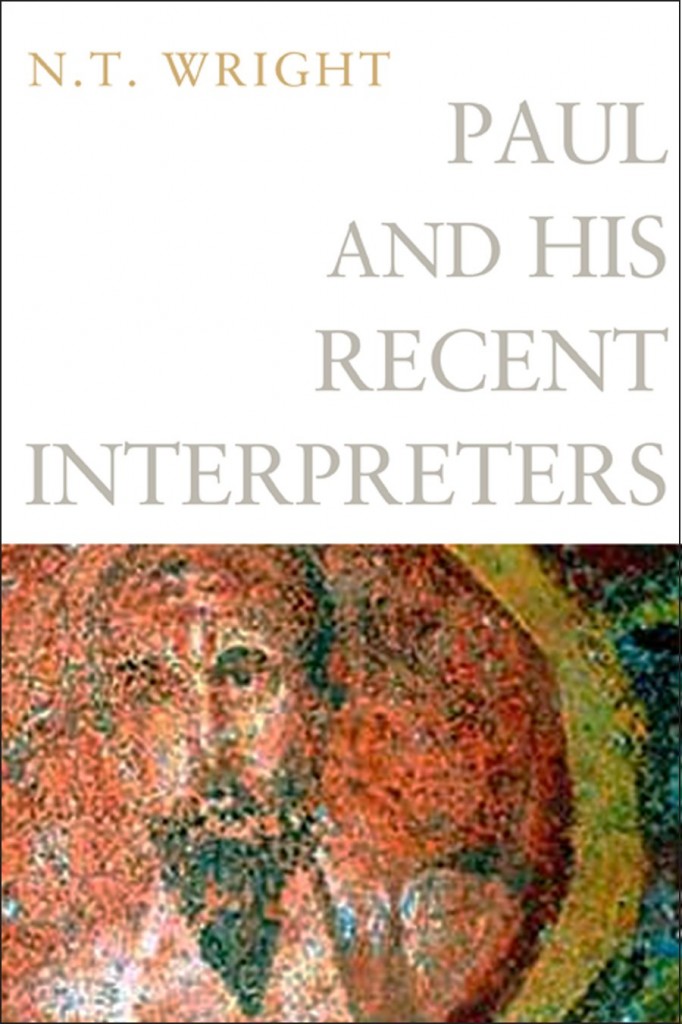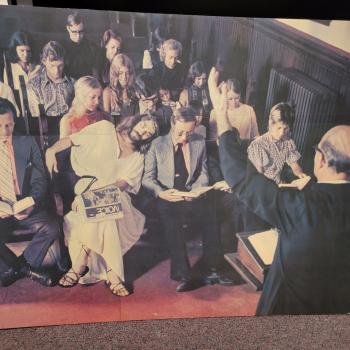The rest of the social analysis chapter (beginning at pp. 287-88) is devoted to a lengthy and useful discussion of David Horrell’s contributions to the analysis of Paul, in particular Horrell’s Solidarity and Difference . Horrell is treating Paul as a ‘practical moral philosopher’ The foundation of Horrell’s book is an account of ‘Paul’s ethics as a whole’ (1), seeing Paul as engaged in the ‘formation and maintenance of human community’ (2), exploring the kinds of values a community needs if it is to maintain both solidarity (Paul’s constant appeals for unity) and ‘difference’
(Paul’s well-known appeals for tolerance).
Tom adds “Connection without conformity, solidarity without sameness: that, in theory, is what we all want…. As Horrell (51) summarizes the point: ‘Liberalism’s “pretensions to neutrality” may be seen to conceal a clear preference in terms of what is and is not truly good’. He cites Mulhall and Swift 1996 [1992], 32, on liberalism’s insistence that ‘a good life is one which has been freely or autonomously chosen by the person living it’. This already implies, however, that the ideal ‘liberal’ world might well contain all kinds of ‘differences’, the sole uniting point being that they had all been freely chosen, which is hardly the same point.”
Wright summarizes Horrell’s agenda as follows: “How does Paul conceive of the distinctive identity of the Christian community, and how does this relate to the possibilities for the wider sharing of ethical values? Does Paul make any appeal to a universal rationality on the basis of which ethical values can be expected to be shared by all humankind, or show any indications that such a moral consensus is attainable? How, if at all, does Paul treat differences (of ethical conviction) within the community, and what kind of moral arguments does he use when faced with such diversity?. . . And the over-arching question: What might the shape and structure of Pauline ethics suggest by way of critical and constructive conclusions in relation to issues raised in the liberal-communitarian debate? (Horrell 2005 p.82)”
Unlike Judge, Horrell wants to give the new Christian sacraments their due, and says —- “Both rituals, baptism and Lord’s supper, at least as Paul interprets them, communicate and reinforce a world-view in which the death and resurrection of Christ are the central events in a cosmic story – these events give meaning to the world, providing the fundamental hermeneutical orientation by which it is to be understood – and at the same time convey as the central theme of the Christian ethos the notion of a solidarity in Christ which transcends former divisions” (Horrell, p. 110). Wright agrees with Horrell that for Paul equality means not merely equal access to salvation , “but is also a social, political space, a space in which the social relationships and interactions of community members are newly conceived and restructured in the light of the world-view and ethos generated by the Christian myth” (Horrell, pp. 128-29). I couldn’t agree more. The attempt to spiritualize Gal. 3.28 simply doesn’t work when one discovers how much Paul is busy reconstructing social relationships within the house churches and within the household codes.
What are Horrell’s major concerns when it comes to ethics? Here’s how Tom sums it up….
“Horrell’s next question: are the ethical norms of the Pauline communities distinctive to them, or are they shared more widely in the surrounding society? What we find, he suggests, will
appear to us as an ‘ironic juxtaposition’ of ‘a sense of distinct (and morally
superior) identity’, on the one hand, and ‘shared ethical norms’ on the other
(159). This irony is particularly apparent in Philippians, where 4.8 lists the
good qualities in the wider world about which Paul wants Messiah-people
to ‘think’. Horrell does not, perhaps surprisingly, discuss the apparent balance
between that verse and the next one, where Paul insists that while the
congregation is to think about the wider world of virtue and goodness, they
are to imitate him specifically in what they have observed of his particular
way of life, with all its differences from that world (4.9; compare 2.14–16).
There is indeed a considerable overlap of moral ideals, expressed up to a
point in a shared vocabulary between Paul’s communities and the non-
Jewish world around them (though there are exceptions: philosophers have
noted the absence, in ancient moralism, of humility, patience, charity and
not least chastity).138 But the main difference is that Paul claims that Christians
can and should live up to the ideals which others may glimpse but not
often follow (162).”
Tom quotes Horrell approvingly as follows: “Horrell then argues that Paul’s ‘tolerant’ stance on the question of food is based on ‘a different kind of foundation and motivation for ethical
decision-making, essentially a relational, other-regarding ethic with a specifically
christological shape’ (172). The death of Christ forms the pattern
according to which the ‘strong’ must give up their presumed rights for the
sake of the ‘weak’. This ethic is ‘grounded . . . in Christology’ (177); it is
‘christologically underpinned’ (181). Paul does not, then, seek to educate
those he deems ‘weak’ in conscience. Instead, he fosters an ‘other-regard’
which allows differences of conviction and practice to remain (182).” Where Tom finds a deficiency is that Horrell rejects the idea he and Meeks accepted, namely that the Christological redefinition of monotheism you see in 1 Cor. 8.4-6 is the very basis of this new ethic.
There are places along the way in this chapter where Horrell’s views are corrected, or partially corrected by Tom. For example, on p. 296 Tom asks “Can Horrell really be right, however, when he suggests that Paul is not here trying to ‘educate’ the ‘weak’? I think not. Paul sees clearly that
creational monotheism rules idol-worship ‘out’ and all foods ‘in’; it seems
strange to think that he would not want to persuade all Messiah-followers to
share these convictions, even if such a process would take time. What we
have here is Paul as a pastor: he knows that people’s consciences, precisely
because they are formed within larger and more complex sets of symbols,
memories, narratives and so on, cannot be brought to a new position overnight.
Of course, his desire for ‘other-regard’, or even for ‘love’, does not
stop when people agree on things where formerly they were at odds. It goes
on being the appropriate mutual stance. But the specific command for what
we sometimes call ‘tolerance’, in this area though not in some others, applies
specifically to the time, be it long or short, in which disagreement persists.
The instruction to ‘love’ those who disagree must not be turned into an
argument against allowing that ‘love’ to generate a new solidarity.
When it comes to Romans 14 and 15, Horrell rightly in my view resists
the attempt of Mark Nanos and others to suggest that the ‘weak’ were non-
Christian Jews. Both groups, rather, are Christian believers (183).
p. 298— After the three central chapters 4, 5 and 6, in which his major claims are
advanced and discussed, chapters 7 and 8 of Horrell’s book are comparatively
straightforward. Chapter 7 argues that ‘other-regard’ joins ‘corporate
solidarity’ as ‘the second key metanorm of Pauline ethics’ (204). This is
worked out in relation to Philippians 2.5–11 in particular. First Corinthians
9 is also important: Paul gives up his ‘rights’, again in imitation of Christ
(231). The model of the self-giving of Christ also plays a central role in
Paul’s appeal to the Corinthians to give generously to the ‘collection’ (241).
This ‘other-regard’, then, is not something apart from Christ and his example;
and the nature of this example wards off, to some extent at least, the
charge that Paul is himself constructing a new discourse of power (242–3).”
Tom however agrees that at its core Paul’s ethics are grounded in the foundational story of Christ and his death and resurrection which provide a new paradigm for self-sacrificial behavior.
















